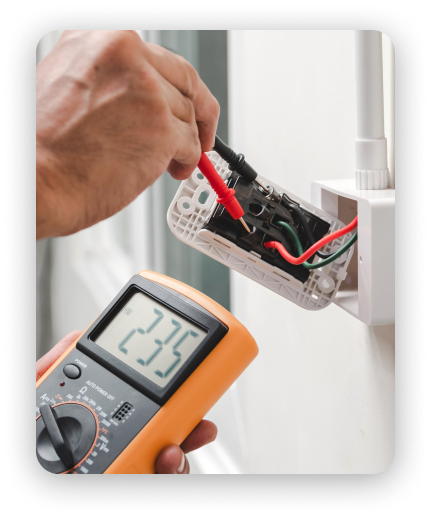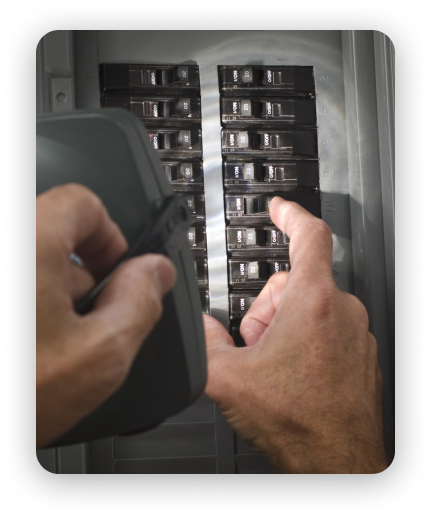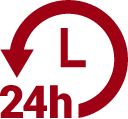If you’re looking to find the right electrician in North Haven, CT, then look no further than F.F. Hitchcock Plumbing, Heating & Cooling! We’re a reputable and top-rated local business with extensive experience as a commercial and residential electrician. We have a team of talented and dedicated electricians who have decades of combined experience, so you can be certain that they’ll be able to help you out with anything you may need. Please feel free to reach out to us if you have any questions or if you need some help with deciding which service would be right for you — our helpful team members will be more than happy to assist you!
Electrician in North Haven, CT
Call us for more details.

Do You Need a Commercial or Residential Electrician?
Sooner or later, every homeowner or commercial property owner needs to reach out to an electrician. Whether you’re moving into a brand new home and you need wiring installed for the very first time, or you’re looking for lighting repair in your commercial property, it’s important to get in touch with a reputable and reliable residential and commercial electrician such as F.F. Hitchcock Plumbing, Heating & Cooling. Please don’t delay booking an appointment if you have any concerns about your current wiring or if you suspect, you may be experiencing malfunctions of any kind. That’s because even minor electrical issues can deteriorate quickly and put your family members, employees, or customers’ lives in danger by increasing the risk of fires and electric shock. The good news is that the vast majority of electrical repair services can be completed quickly and efficiently if they’re tackled in good time.
- Residential electrician
- Commercial electrician
- Electrical installation
- Electrical repair
- Electrical Panel Repair and Upgrade
- Lighting installation
- EV Charger Installation
- Generator installation
- Electrical wiring
- Whole home surge protection installation
- Surge protection system
- Appliance installation
F.F. Hitchcock Plumbing, Heating & Cooling: Top-Rated and Reliable Residential and Commercial Electrician in North Haven
Here at F.F. Hitchcock Plumbing, Heating & Cooling, we’re committed to doing things the right way. That’s why we prioritize both excellent customer service and working to the highest standard at all times. As a result of our hard work and dedication, we’ve established ourselves as one of the leading service providers in the local community. You don’t have to take us at our word for this — please feel free to read through some of the glowing feedback we’ve received on online platforms such as Google and Facebook. We’re grateful to everyone who has taken the time to write us a positive review, as they motivate us to continue going above and beyond for all of our clients!
Please don’t hesitate to reach out to us at F.F. Hitchcock Plumbing, Heating & Cooling if you’re looking for an electrician in North Haven. We can be contacted on the phone or through our website today!
Frequently Asked Questions

What services do residential electricians provide?
Residential electricians handle wiring, lighting installation, outlet repair, electrical panel upgrades, EV charger installations, and other home electrical needs to ensure safe and efficient power throughout your home.
What’s the difference between a residential and commercial electrician?
Residential electricians focus on home installations, repairs, and upgrades, while commercial electricians handle larger systems in business environments, often requiring different codes and power demands for commercial properties.
When should I contact an electrician for electrical repair?
Contact an electrician as soon as you notice issues like flickering lights, frequent breaker trips, sparking outlets, or buzzing sounds. Addressing these early helps prevent safety risks like electric shock or fire hazards.
Do I need an electrician to install a new appliance?
Yes, an electrician ensures that appliances are safely installed and wired according to code, especially high-power appliances that may require dedicated circuits or specific outlet types.
How often should electrical panels be inspected or upgraded?
It’s recommended to inspect electrical panels every 3-5 years. Older panels, particularly those over 25 years old, may need an upgrade to meet modern energy demands and safety standards.
What is whole-home surge protection, and is it necessary?
Whole-home surge protection shields all devices in your home from voltage spikes, often caused by lightning or power surges. It’s especially useful for safeguarding electronics and appliances from unexpected damage.
Can an electrician help improve my home’s energy efficiency?
Yes, electricians can install energy-efficient lighting, smart thermostats, and updated wiring, which reduce energy waste and lower utility bills over time, enhancing overall efficiency.
What are the benefits of hiring a licensed electrician?
Licensed electricians have the training and knowledge to handle electrical work safely and according to code, reducing risks of fire or electric shock and ensuring long-lasting, reliable repairs and installations.
How long does it take to install an EV charger at home?
EV charger installation typically takes a few hours to one day, depending on your home’s setup and any necessary panel upgrades. A licensed electrician can ensure safe and compliant installation.
Why is it important to address minor electrical issues quickly?
Minor electrical issues can escalate into significant safety hazards if left unresolved. Quick repair prevents potential damage, fire risks, and ensures the continued safety and functionality of your electrical system.








